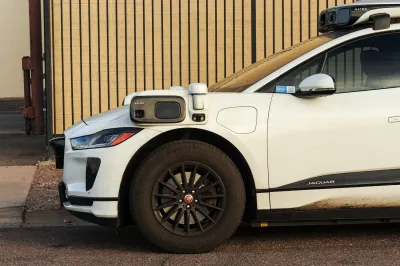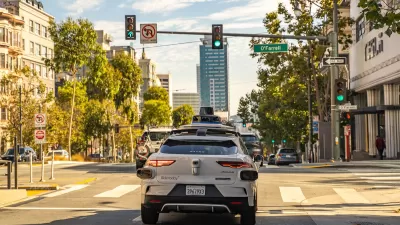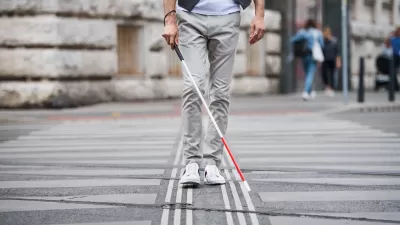The agency is reducing reporting requirements for autonomous vehicles and cars with self-driving features, prompting concern among safety advocates who say transparency is essential to the safe deployment of AV technology.

The U.S. Department of Transportation announced it is rolling back regulations on self-driving vehicles. According to an article by Aarian Marshall in Wired, carmarkers will no longer have to provide detailed reports of crashes to government agencies.
“But the new rules will limit the information available to those who watchdog and study autonomous vehicles and driver assistance features—tech developments that are deeply entwined with public safety but which companies often shield from public view because they involve proprietary systems that companies spend billions to develop,” Marshall explains.
Now, automakers will not be required to report crashes that include property damage under $1,000 in value or that do not result in “fatalities, hospitalizations, air bag deployments, or a strike on a ‘vulnerable road user,’ like a pedestrian or cyclist.”
Road safety advocates worry the changes will lead to significant underreporting of crashes. “The new DOT framework will also allow automakers to test self-driving technology with more vehicles that don’t meet all federal safety standards under a new exemption process.” The process, which is currently available to foreign vehicles, can let carmakers bypass typical safety features that can be replaced by computers.
FULL STORY: In a Boon for Tesla, Feds Weaken Rules for Reporting on Self-Driving

Planetizen Federal Action Tracker
A weekly monitor of how Trump’s orders and actions are impacting planners and planning in America.

San Francisco's School District Spent $105M To Build Affordable Housing for Teachers — And That's Just the Beginning
SFUSD joins a growing list of school districts using their land holdings to address housing affordability challenges faced by their own employees.

The Tiny, Adorable $7,000 Car Turning Japan Onto EVs
The single seat Mibot charges from a regular plug as quickly as an iPad, and is about half the price of an average EV.

Seattle's Plan for Adopting Driverless Cars
Equity, safety, accessibility and affordability are front of mind as the city prepares for robotaxis and other autonomous vehicles.

As Trump Phases Out FEMA, Is It Time to Flee the Floodplains?
With less federal funding available for disaster relief efforts, the need to relocate at-risk communities is more urgent than ever.

With Protected Lanes, 460% More People Commute by Bike
For those needing more ammo, more data proving what we already knew is here.
Urban Design for Planners 1: Software Tools
This six-course series explores essential urban design concepts using open source software and equips planners with the tools they need to participate fully in the urban design process.
Planning for Universal Design
Learn the tools for implementing Universal Design in planning regulations.
Smith Gee Studio
City of Charlotte
City of Camden Redevelopment Agency
City of Astoria
Transportation Research & Education Center (TREC) at Portland State University
US High Speed Rail Association
City of Camden Redevelopment Agency
Municipality of Princeton (NJ)





























